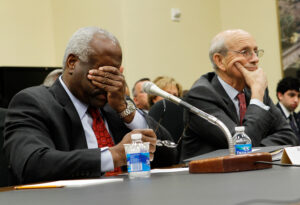Ed.
note:
This
is
the
latest
in
the
article
series,
Cybersecurity:
Tips
From
the
Trenches,
by
our
friends
at
Sensei
Enterprises,
a
boutique
provider
of
IT,
cybersecurity,
and
digital
forensics
services.
As
we
begin
2025,
attorneys
hope
the
new
year
brings
them
happiness,
health,
and
prosperity.
One
situation
every
law
firm
wants
to
avoid
this
upcoming
year
is
a
cyber
incident
or,
worse,
a
data
breach.
Not
all
cyber
incidents
are
data
breaches,
but
cybersecurity
protections
should
be
implemented
to
protect
your
firm’s
information
and
confidential
files.
Keeping
attackers
out
of
your
information
systems
has
become
more
challenging
than
ever.
Cyber
threats
have
become
more
sophisticated,
harder
to
detect,
and
much
more
expensive
to
recover
from.
According
to
Thomson
Reuters,
in
2024,
the
average
cost
of
a
data
breach
reached
$4.88
million.
That
cost
alone
may
sink
some
law
firms,
especially
those
which
are
under-insured.
Understanding
the
actual
cost
of
a
data
breach
will
only
help
firms
realize
the
critical
importance
of
maintaining
current
cybersecurity
measures.
Data
Breach
Defined
A
data
breach
is
a
security
incident
in
which
unauthorized
individuals
gain
access
to
sensitive
or
confidential
information,
like
personal
data
(Social
Security
numbers,
bank
details)
or
corporate
data
(customer
records,
intellectual
property),
due
to
a
lapse
in
security
measures,
often
through
hacking
or
human
error.
Essentially,
it’s
when
private
information
is
exposed
to
people
who
shouldn’t
have
access
to
it.
Data
breaches
can
occur
in
many
ways,
including
phishing
attacks,
malware,
ransomware,
and
insider
attacks.
They
can
result
in
identity
theft,
financial
fraud,
reputational
damage,
and
possibly
legal
action.
Class
action
lawsuits
are
proliferating
with
frightful
speed.
Phishing
attacks
are
more
sophisticated
than
ever,
and
when
combined
with
AI,
they
can
get
through
email
protection
filters
and
steal
users’
credentials
(these
are
called
Business
Email
Compromise
attacks).
Current
ransomware,
the
data
exfiltration
version,
continues
to
plague
law
firms
by
requesting
two
ransom
payments:
one
to
decrypt
and
another
to
return
“stolen”
data.
Exploiting
vulnerabilities
of
dated,
unpatched
systems
allows
attackers
to
access
the
infected
system
and
move
laterally
within
the
network,
evading
detection
by
common
standard
cybersecurity
measures.
Lastly,
the
disgruntled
former
employee
must
not
be
forgotten,
as
sometimes
they
can
cause
far
more
significant
damage
given
their
intimate
knowledge
of
the
firm’s
technology.
The
Financial
Impact:
It’s
Often
Brutal
There
are
some
obvious
costs
associated
with
data
breaches.
First,
there
is
the
immediate
reaction
and
incident
response.
You
may
have
expenses
with
information
technology
vendors,
cybersecurity
consultants,
and
digital
forensics
investigators
to
understand
what
happened,
the
scope
of
the
attack,
and
what
confidential
data
may
have
been
accessed
or
stolen.
Business
continuity
costs
are
the
expenses
relating
to
the
recovery
and
restoration
of
your
systems,
which
can
be
expensive,
depending
on
the
number
of
infected
endpoints
and
the
complexity
of
the
technical
environment.
Getting
your
business
back
up
and
operational
is
key
to
surviving
a
data
breach.
An
immutable
backup
(backups
that
cannot
be
changed
or
deleted
for
a
specified
period
of
time)
you
can
restore
from
is
the
#1
antidote
to
recovering
from
the
venom
of
a
cyber-attack
such
as
ransomware.
Depending
on
the
scope
and
severity,
law
firms
are
now
facing
regulatory
fines
for
violating
state
data
privacy
laws,
on
top
of
the
threat
of
a
class
action
lawsuit.
Retaining
legal
representation
to
defend
against
these
additional
actions
can
be
astronomical
and
is
another
cost
to
add
to
the
heaping
pile
of
expenses
due
to
a
data
breach.
Lastly,
and
the
hardest
to
measure,
is
reputational
damage.
How
many
clients
were
lost
due
to
the
breach?
How
many
potential
clients
took
their
business
elsewhere?
How
many
employees
have
left
your
firm,
and
are
you
finding
replacing
them
with
good
talent
more
challenging?
These
are
all
data
points
that
we
hope
you
never
have
to
measure.
You
can
reduce
your
firm’s
risk
of
experiencing
data
breaches
in
several
ways.
While
no
combination
is
100%
effective,
every
little
bit
helps.
Mandatory
cybersecurity
awareness
training,
having
a
good
cybersecurity
posture,
risk
management
controls,
proactive
monitoring
for
cyber
incidents,
and
following
cybersecurity
best
practices
for
small
businesses
such
as
NIST
(https://nvlpubs.nist.gov/nistpubs/SpecialPublications/NIST.SP.1300.pdf)
or
CISA
(https://www.cisa.gov/cyber-guidance-small-businesses)
guidelines
are
great
ways
to
start
2025
on
the
right
path
toward
an
incident-free
year.
Michael
C.
Maschke
([email protected])
is
the
President
and
Chief
Executive
Officer
of
Sensei
Enterprises,
Inc.
Mr.Maschke
is
an
EnCase
Certified
Examiner
(EnCE),
a
Certified
Computer
Examiner
(CCE
#744),
an
AccessData
Certified
Examiner
(ACE),
a
Certified
Ethical
Hacker
(CEH), and
a
Certified
Information
Systems
Security
Professional
(CISSP).
He
is
a
frequent
speaker
on
IT,
cybersecurity,
and
digital
forensics
and
he
has
co-authored
14
books
published
by
the
American
Bar
Association.
Sharon
D.
Nelson
([email protected])
is
the
co-founder
of
and
consultant
to
Sensei
Enterprises,
Inc.
She
is
a
past
president
of
the
Virginia
State
Bar,
the
Fairfax
Bar
Association,
and
the
Fairfax
Law
Foundation.
She
is
a
co-author
of
18
books
published
by
the
ABA.
John
W.
Simek
([email protected])
is
the
co-founder
of
and
consultant
to
Sensei
Enterprises,
Inc.
He
is
a
Certified
Information
Systems
Security
Professional
(CISSP),
a Certified
Ethical
Hacker
(CEH),
and
a
nationally
known
digital
forensics
expert.
He
is
a
co-author
of
18
books
published
by
the
ABA.
 Chris
Chris







 Kathryn
Kathryn






